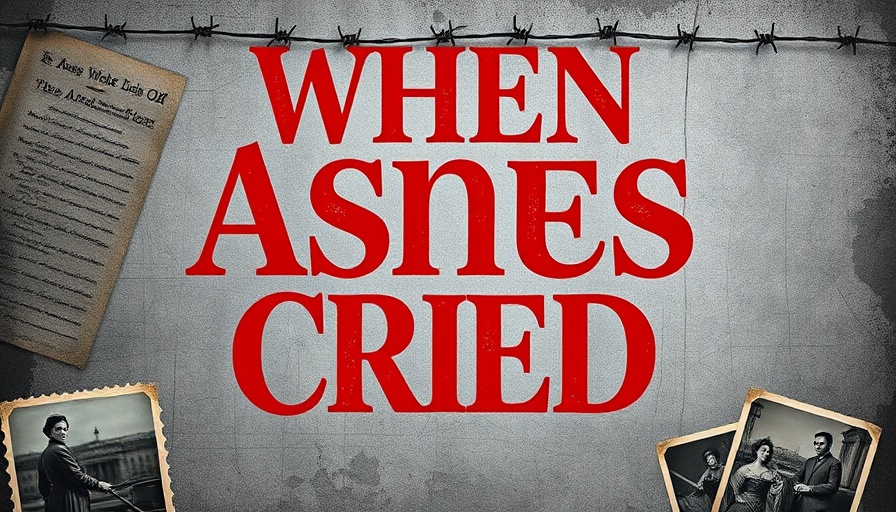
Unveiling the Shadows: Understanding "When Ashes Cried"
Alan A. Winter’s latest novel, "When Ashes Cried," takes readers deep into a dark chapter of history, exploring the intricacies of Nazi reasoning and the terror that culminated in the Holocaust. Through the eyes of its protagonist, Friedrich Richard, an amnesiac who is deeply tied to Hitler’s inner circle, readers get unprecedented access to the machinations behind one of history's most devastating events. This poignant portrayal not only offers suspense but also serves as a crucial reminder of the moral complexities faced during that time.
The Importance of Historical Fiction: Beyond Entertainment
For Winter, writing historical fiction transcends mere storytelling; it’s a means to bridge the past and present. “I love learning about the past to understand the present,” he shares. His desire to weave together historical facts into compelling narratives allows readers to connect emotionally with historical events. "When Ashes Cried" seeks to engage readers not only in the narrative of Holocaust history but also in the broader implications of forgetting historical truths.
A Unique Approach: Illustrated Novel vs. Traditional Narratives
This new addition to Winter's work stands out not only for its intense subject matter but also because it is presented as an illustrated novel. Featuring over sixty photographs, Winter aims to create a visceral impact. “It ties the various threads that run through the first two books together,” he explains. The visuals enhance the storytelling experience, offering a tangible connection to this harrowing period, illustrating the human elements behind newsprint accounts.
Redefining Heroes and Villains: The Protagonist’s Journey
A particularly challenging aspect of "When Ashes Cried" lies in its protagonist, Friedrich, a Nazi general portrayed with complex humanity. Winter's task was to elicit empathy for a character that epitomizes villainy. Through his amnesia-induced memory loss, readers witness Friedrich's gradual transformation, which reflects the potential for human connection even amid chaos. This narrative choice prompts readers to question the nature of morality in extreme situations and consider the human capacity for change.
Lessons from the Past: Warning Signs Ignored
Winter emphasizes the relevance of historical awareness in combating modern-day ignorance. He reflects on how the West’s failure to confront Hitler during his rise is a critical lesson to learn today. "Because accurate histories shore up present beliefs," he notes, underlining the necessity of a well-informed populace. This call to action urges readers to reflect upon their understanding of history as essential to safeguarding democracy.
Looking Forward: The Cultural Memory We Foster
As society continues to grapple with themes of resilience and betrayal, "When Ashes Cried" becomes more than just an exploration of the past; it becomes a dialogue for contemporary relevance. By focusing on hidden truths and the resilience of the human spirit, Winter’s work encourages readers to confront uncomfortable truths that shaped our world.
Ultimately, "When Ashes Cried" asks us to not only remember history but to learn from it. Alan A. Winter's narrative shines a light on the responsibility that lies with each of us to keep the conversation going, to ensure that the past we inherit doesn’t repeat its darkest moments. For anyone captivated by the complexities of World War II or intrigued by narratives rich in human experience, this novel promises to deliver a gripping and emotional journey.
 Add Row
Add Row  Add
Add 




Write A Comment